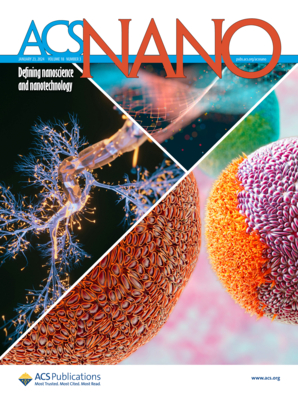Self-Assembled Glycopeptide as a Biocompatible mRNA Vaccine Platform Elicits Robust Antitumor Immunity
IF 15.8
1区 材料科学
Q1 CHEMISTRY, MULTIDISCIPLINARY
引用次数: 0
Abstract
Since the emergence of the COVID-19 pandemic, mRNA vaccines have garnered significant attention. Delivery systems affect the effectiveness of mRNA vaccines, yet there remains a scarcity of vectors that can achieve safe and efficient delivery of mRNA. We took advantage of self-assembled glycopeptides (SAPs) to develop a vector named Man-MPm, which was coupled with mannose and manganese ions to achieve lymph node targeting and STING pathway activation. The Man-MPm-based mRNA vaccine exhibited high biosafety across various administration routes, eliciting robust antigen-specific immune responses within lymph nodes. Due to the elevated antitumor immunity, Man-MPm significantly suppressed tumor growth and extended the survival period of mice in melanoma prevention and treatment models as well as in a colon cancer model. Our findings show that Man-MPm addresses the challenges to safety and effectiveness associated with mRNA delivery by incorporating a lymph node-targeting ligand and a STING pathway agonist onto highly biocompatible SAP, and Man-MPm holds great potential for developing mRNA tumor vaccines.

自组装糖肽作为生物相容性mRNA疫苗平台引发强大的抗肿瘤免疫
自COVID-19大流行出现以来,mRNA疫苗引起了极大的关注。递送系统影响mRNA疫苗的有效性,但仍然缺乏能够实现安全有效递送mRNA的载体。我们利用自组装糖肽(SAPs)开发了一种名为Man-MPm的载体,该载体与甘露糖和锰离子偶联,实现淋巴结靶向和STING通路激活。基于man - mpm的mRNA疫苗在各种给药途径中表现出很高的生物安全性,在淋巴结内引发强大的抗原特异性免疫反应。由于提高抗肿瘤免疫,Man-MPm在黑色素瘤防治模型和结肠癌模型中显著抑制肿瘤生长,延长小鼠生存期。我们的研究结果表明,Man-MPm通过将淋巴结靶向配体和STING途径激动剂结合到高度生物相容性的SAP上,解决了与mRNA递送相关的安全性和有效性挑战,并且Man-MPm具有开发mRNA肿瘤疫苗的巨大潜力。
本文章由计算机程序翻译,如有差异,请以英文原文为准。
求助全文
约1分钟内获得全文
求助全文
来源期刊

ACS Nano
工程技术-材料科学:综合
CiteScore
26.00
自引率
4.10%
发文量
1627
审稿时长
1.7 months
期刊介绍:
ACS Nano, published monthly, serves as an international forum for comprehensive articles on nanoscience and nanotechnology research at the intersections of chemistry, biology, materials science, physics, and engineering. The journal fosters communication among scientists in these communities, facilitating collaboration, new research opportunities, and advancements through discoveries. ACS Nano covers synthesis, assembly, characterization, theory, and simulation of nanostructures, nanobiotechnology, nanofabrication, methods and tools for nanoscience and nanotechnology, and self- and directed-assembly. Alongside original research articles, it offers thorough reviews, perspectives on cutting-edge research, and discussions envisioning the future of nanoscience and nanotechnology.
 求助内容:
求助内容: 应助结果提醒方式:
应助结果提醒方式:


